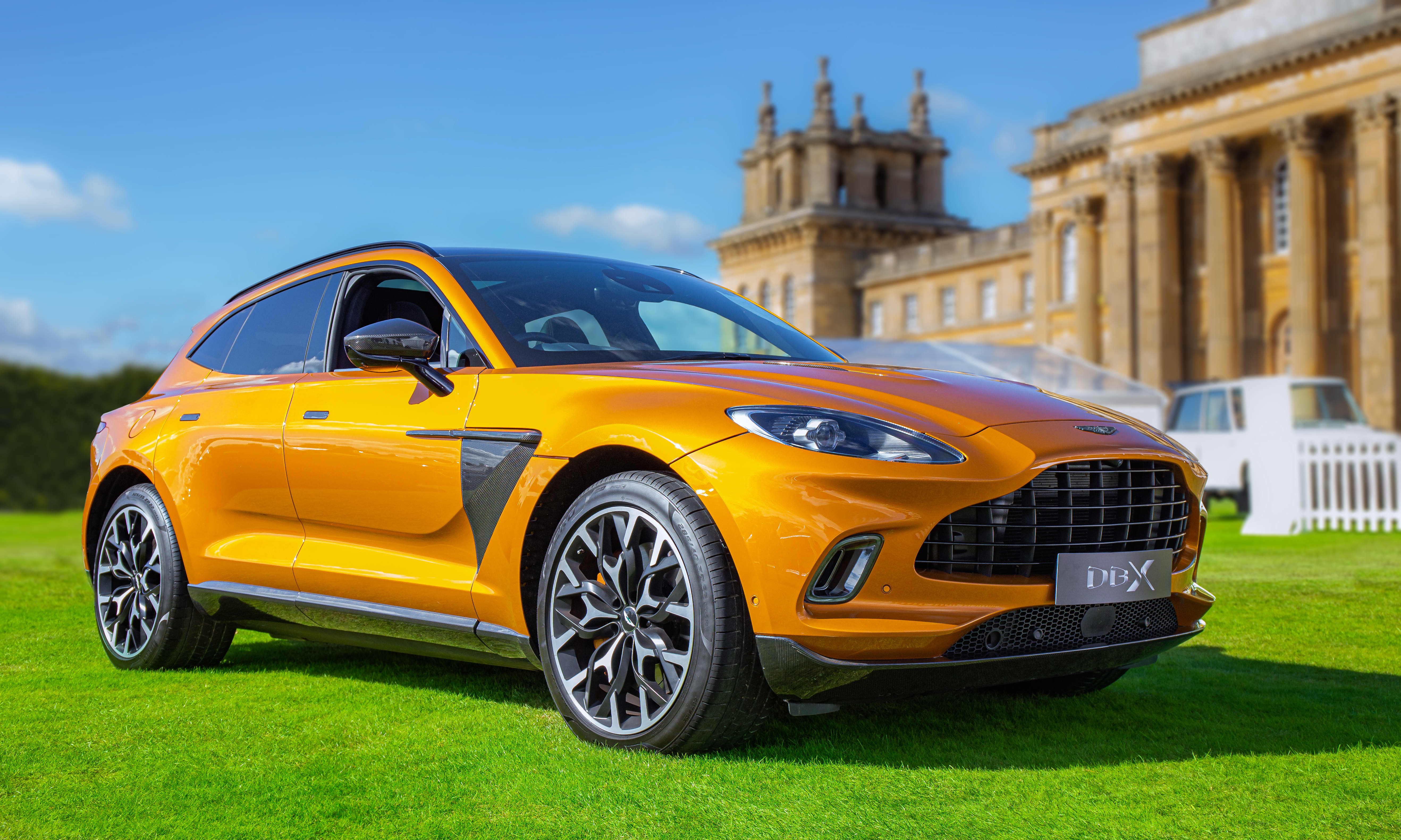Aston Martin Executive Chairman Lawrence Stroll said the company is set to produce 10,000 vehicles a year by 2025, adding that the company’s “risks are behind us.”
The Canadian billionaire told CNBC he invested $1 billion in Aston Martin and its Formula 1 team and is confident his turnaround plan is paying off.
“I have delivered on every single thing I said to the public since the day I became executive chairman and far surpassed what I promised,” Stroll said in an interview. “The risks are behind us. We have tremendous growth in front of us and a Formula 1 team to market it.”
A consortium of investors led by Stroll took a 16.7% stake in Aston in early 2020, right before the pandemic shut much of the world down. He increased his investment to 25% of the company in March, injecting another $25 million. Stroll also brought his own Formula 1 team to Aston Martin and delayed the company’s EV plans to 2025 as competitors raced out new electric supercars, a controversial move that helped control costs.
Stroll’s plans are starting to pay off. Aston Martin’s losses are projected to grow smaller in the coming years — welcome news to investors. The company’s share price has nearly doubled since Stroll took over last year. While Wall Street analysts are cautious, they seem to like Stroll’s changes so far.
“With Q2 numbers slightly ahead of expectations for most items and an unchanged guidance for volumes and underlying earnings, we see Aston Martin ticking the boxes on what’s needed to build a track record and taking it one step at a time to deliver on the full year targets,” analysts at Deutsche Bank wrote in a July 28 note to investors.
Goldman Sachs analysts told investors July 28 that Aston Martin was finally “seeing the payback from hard work last year.”
Aston Martin, the 108-year-old British marquis best-known for supplying James Bond with scores of stylish rides, reported a 224% increase in sales in the second quarter and a $189 million decline in pre-tax losses. The growth was led by strong sales of its SUV, the DBX. The company, which expects to produce about 6,000 vehicles this year, is aiming to grow production to 10,000.
Stroll led an investor bail-out of the company last year, after it came under pressure from growing debt and widening losses following its 2018 IPO. While Aston Martin compared itself with Ferrari when it went public, Ferrari’s share price has quadrupled since its 2015 IPO while Aston Martin’s is down more than 80%. Ferrari is valued by investors more like a luxury brand than a low-margin car-maker — a strategy that’s likely to be followed by Stroll, who made his billions helping to expand luxury brands like Michael Kors and Tommy Hilfiger.
At Aston Martin, Stroll said had hit five key milestones he aimed to hit as part of his turnaround plan. First, he said, the company is now on strong financial footing.
“The plan was to get to 10,000 cars and 500 million in EBITDA by 2025, and the company is now fully funded to do that,” he said, referencing a commonly used way to measure profits: earnings before interest taxes depreciation and amortization.
Launching the SUV was key, Stroll said. “The orders are there, the customers love it,” he said. “It’s the best looking SUV, it drives like a sports car.”
Second, he brought in a new management team, led by CEO Tobias Moers, the former CEO of Mercedes-AMG and a widely respected car engineer. “He understands this business and he’s also a chief technology officer, which is rare in the business,” Stroll said.
Third was to get Mercedes as a financial and strategic partner. It’s now the second-largest shareholder after Stroll. Fourth, Stroll aimed to improve the product range with a new hybrid that was just launched.
Finally, Stroll highlighted the launch of its Formula 1 team, which helps market the brand and develop technologies used in its mid-engine sports cars, like the Valkyrie.
“There are 23 Grand Prix around the world,” Stroll said, “And we get to meet around 500 customers every race. I don’t know another business where you can do that and touch your customers.”
Some U.S. dealers have questioned Aston Martin’s investment in Formula 1, since the sport is not as popular in America. But Stroll said it’s popularity in growing in the U.S., thanks in part to the Netflix series “Formula 1: Drive to Survive.”
“Netflix has done wonders for Formula 1, particularly the American audience” he said. “It’s shown them what the world of Formula 1 is like, inside the sport,” he said. “Not only on the track but the lives of the drivers.”
As for Aston’s longtime role alongside James Bond, Stroll said there are four Aston Martins in the upcoming “No Time to Die” film slated to open in October. When asked if the Bond franchise could eventually choose another brand for the future, Stroll said: “I think we’re both important to each-other. I don’t think James Bond would be the same without Aston Martin and I don’t think Aston Martin would be the same without James Bond. It’s a perfect marriage.”
Still, analysts remain cautious on the stock. J.P. Morgan analyst Jose Asumendi, who has a neutral rating on the stock, praised Aston’s management team in a recent note, but said “the equity story is still risky” and that “there are still a number of questions that are unanswered” on Stroll’s production target.
